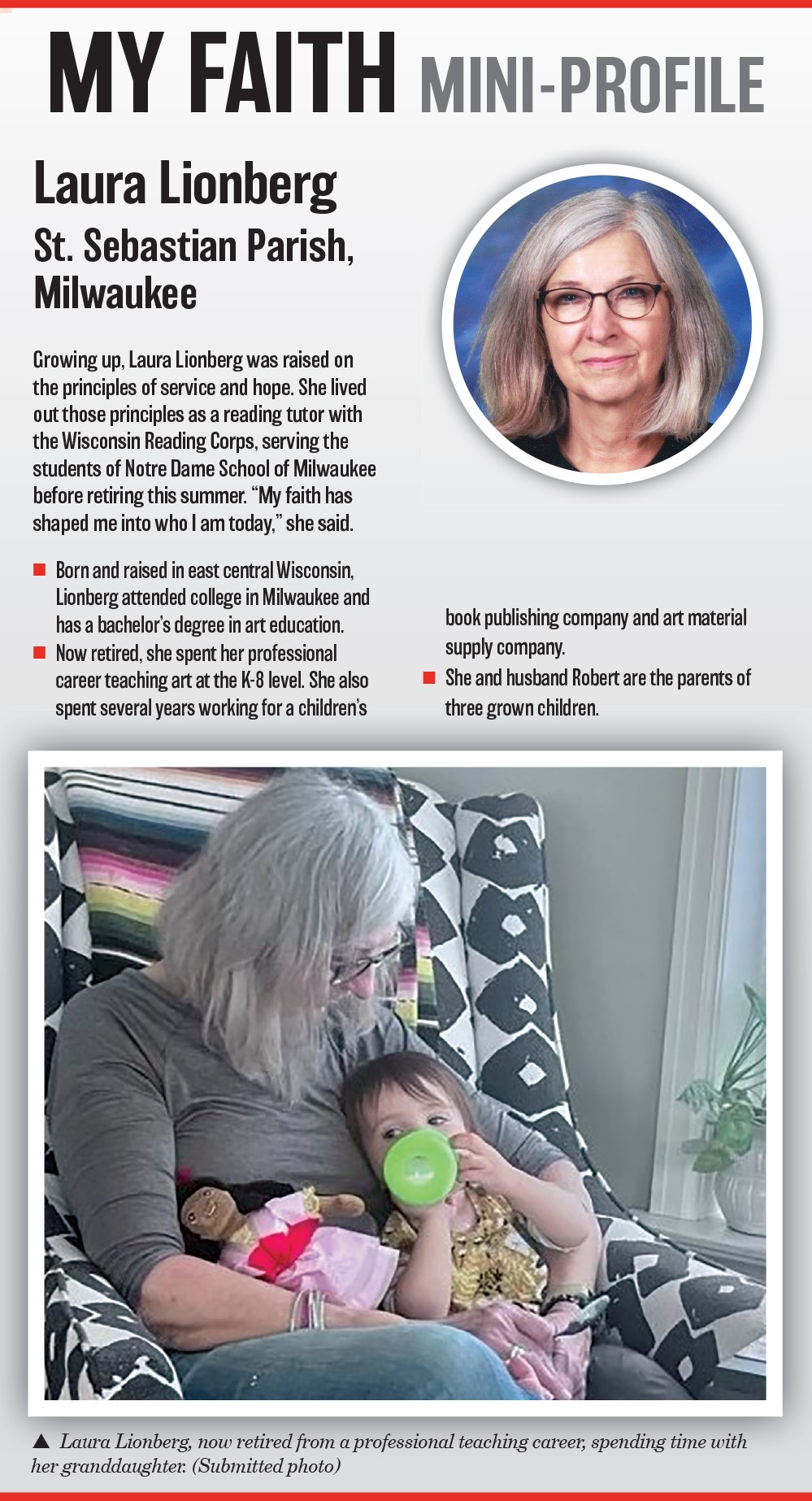Living Our Witness
Where are you from, and what impact has your background had on the work you do today?
I was born and raised in a small east central Wisconsin town, population about 4,000. Our home was in the country, two miles outside of town, so I was fortunate to grow up having many animals and immersed in nature. Consequently, I have an immense respect and appreciation for creation and possess a conservation mindset.
What role did your Catholic faith play in your upbringing?
I was raised Catholic, and I was taught to love thy neighbor as thyself, strive to be equitable, just, un-judgmental and hopeful. There was ample opportunity growing up in a small tightknit community and family to learn and live these guiding principles. Although faith is a lifelong journey, I believe one’s family has a profound impact on faith experience.
How did you come to be involved in the Wisconsin Reading Corps? What has that experience been like for you?
Following my retirement from teaching in 2019, I responded to a job posting for reading tutors with the Wisconsin Reading Corps. I began my service term at Notre Dame School of Milwaukee, which is a dual language school. The assignment and position was a perfect fit, and I found the experience challenging, enjoyable and rewarding. Although I had no prior experience in literacy instruction, I was thoroughly trained and supported throughout my term by the Wisconsin Reading Corps program.
Can you tell us a little about the role of a reading tutor?
My role as a tutor consisted of delivering a variety of sequential reading interventions and assessments, one-on-one, with K through third grade students. Most of my previous teaching experience was in a classroom setting with 18 to 28 students in a class, so to work daily, one-on-one, for a 20-minute reading session was a delightful variation. Each student is unique with their own learning style, interests and personality. Tutors partner with school staff, (and) external and internal Reading Corps coaches to provide each student assigned to their caseload with the reading experiences and interventions needed to develop their literacy skills and reach their potential.
What was it like working with Notre Dame students in particular?
Notre Dame is a K3 through eighth grade school teaching in both Spanish and English. It’s so impressive and amazing to observe students read and write proficiently in two languages, becoming bilingual. I felt like a valued member of the team and am very grateful for the experience.
How crucial is it that children get the reading support they need in elementary and middle school in order to be successful in the future?
The support is crucial. Research-driven data substantiates the urgency since many students reach fourth grade not meeting proficiency. Students learn how to read primarily up to and through third grade but in fourth grade, expectations change when they are expected to read to learn. Therefore, the earlier students receive support, the better their academic outcome. Academic success directly impacts our societal and economic conditions. On the wall by the Reading Corps desk, I displayed a little poster by Dr. Seuss. It read; “The more you read, the more you know. The more you know, the more places you’ll go!” For our young readers, this little message highlights and validates the importance of reading in an understandable way.
What do you love about being Catholic? Do you have any favorite saints, scripture verses or devotions?
I am so appreciative of the Catholic liturgical seasons in particular. They provide a yearly journey to experience and celebrate the mystery of our faith. The lives of all saints are so inspirational, and I am grateful to have these faith-filled holy lives as models. I also enjoy reading the Scripture through the eyes, hearts and wisdom of contemporary spiritual writers. Often, their guidance makes verse more relatable for me.

